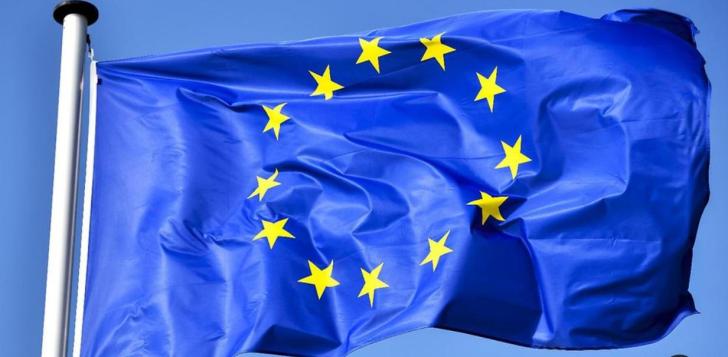News / National
Zimbabwe misses €150 billion conditional funding from EU
30 May 2025 at 11:14hrs |
0 Views

Europe and Africa's strategic partnership has entered an exciting new phase, with both continents reaffirming their commitment to deepen economic cooperation and promote global peace. However, Zimbabwe continues to miss out on the benefits of this growing alliance due to unresolved governance challenges and a crippling debt burden.
The renewed momentum in EU-Africa relations was highlighted at a high-level European Union-African Union ministerial meeting held in Brussels last week, commemorating 25 years of bilateral engagement. The meeting was co-chaired by the EU's Foreign Affairs chief, Kaja Kallas, and Angola's Foreign Minister, Téte António. Discussions focused on boosting mutual prosperity while addressing pressing geopolitical tensions in hotspots such as the Democratic Republic of Congo, Sudan, and Ukraine.
A key feature of this renewed partnership is the European Union's €150 billion Global Gateway investment package aimed at supporting infrastructure, energy access, and economic development across Africa. For 2025 alone, the EU has pledged at least €500 million in humanitarian assistance to tackle various crises on the continent.
Despite this large-scale financial commitment, Zimbabwe remains sidelined, unable to tap into the facility due to its unsustainable foreign debt, which stands at around US$13 billion. While some have attributed Zimbabwe's exclusion to Western sanctions, officials at the Brussels meeting clarified that the country's failure to implement essential governance reforms under the African Development Bank's debt resolution strategy is the primary cause. These reforms include tackling public corruption, strengthening democratic institutions, respecting property rights, and compensating farmers who lost land during Zimbabwe's controversial land reform programme in 2000.
Zimbabwe was represented at the summit by Deputy Foreign Affairs Minister Sheila Chikomo but found itself isolated as many other African nations positioned themselves to benefit from EU support. The European Union has made it clear that the door remains open for Zimbabwe, but meaningful reforms must be enacted first.
Further complicating Zimbabwe's strained relationship with the EU, Brussels recently suspended funding for governance initiatives after Zimbabwe passed the Private Voluntary Organisations Amendment Bill, legislation that has been widely criticised for undermining constitutional rights and stifling civil society activities.
While Zimbabwe struggles to access international financial support, its neighbors are successfully securing major funding. In March, South Africa obtained a €4.7 billion (US$5 billion) Global Gateway package to promote investment and trade. Other African nations have also moved swiftly to finalise agreements under the EU's economic initiatives.
Zimbabwe's funding challenges have also been worsened by former US President Donald Trump's decision to cut billions of dollars in aid to Africa through the United States Agency for International Development (USAID), further limiting the country's development options.
Analysts say Zimbabwe's isolation is largely the result of internal policy failures rather than external geopolitics. There is consensus that the country's re-engagement with the EU and broader international partners hinges on genuine political and economic reforms. The message is clear: Africa's future partnerships with Europe will be based on shared values such as transparency, accountability, and good governance.
For now, while Europe and Africa celebrate deepening ties and promising new opportunities, Zimbabwe remains a cautionary example of missed potential amid a shifting global landscape. Unless it commits to reform, Zimbabwe risks further marginalisation from vital international support and partnerships.
The renewed momentum in EU-Africa relations was highlighted at a high-level European Union-African Union ministerial meeting held in Brussels last week, commemorating 25 years of bilateral engagement. The meeting was co-chaired by the EU's Foreign Affairs chief, Kaja Kallas, and Angola's Foreign Minister, Téte António. Discussions focused on boosting mutual prosperity while addressing pressing geopolitical tensions in hotspots such as the Democratic Republic of Congo, Sudan, and Ukraine.
A key feature of this renewed partnership is the European Union's €150 billion Global Gateway investment package aimed at supporting infrastructure, energy access, and economic development across Africa. For 2025 alone, the EU has pledged at least €500 million in humanitarian assistance to tackle various crises on the continent.
Despite this large-scale financial commitment, Zimbabwe remains sidelined, unable to tap into the facility due to its unsustainable foreign debt, which stands at around US$13 billion. While some have attributed Zimbabwe's exclusion to Western sanctions, officials at the Brussels meeting clarified that the country's failure to implement essential governance reforms under the African Development Bank's debt resolution strategy is the primary cause. These reforms include tackling public corruption, strengthening democratic institutions, respecting property rights, and compensating farmers who lost land during Zimbabwe's controversial land reform programme in 2000.
Zimbabwe was represented at the summit by Deputy Foreign Affairs Minister Sheila Chikomo but found itself isolated as many other African nations positioned themselves to benefit from EU support. The European Union has made it clear that the door remains open for Zimbabwe, but meaningful reforms must be enacted first.
While Zimbabwe struggles to access international financial support, its neighbors are successfully securing major funding. In March, South Africa obtained a €4.7 billion (US$5 billion) Global Gateway package to promote investment and trade. Other African nations have also moved swiftly to finalise agreements under the EU's economic initiatives.
Zimbabwe's funding challenges have also been worsened by former US President Donald Trump's decision to cut billions of dollars in aid to Africa through the United States Agency for International Development (USAID), further limiting the country's development options.
Analysts say Zimbabwe's isolation is largely the result of internal policy failures rather than external geopolitics. There is consensus that the country's re-engagement with the EU and broader international partners hinges on genuine political and economic reforms. The message is clear: Africa's future partnerships with Europe will be based on shared values such as transparency, accountability, and good governance.
For now, while Europe and Africa celebrate deepening ties and promising new opportunities, Zimbabwe remains a cautionary example of missed potential amid a shifting global landscape. Unless it commits to reform, Zimbabwe risks further marginalisation from vital international support and partnerships.
Source - Zimbabwe Independent
Join the discussion
Loading comments…






































